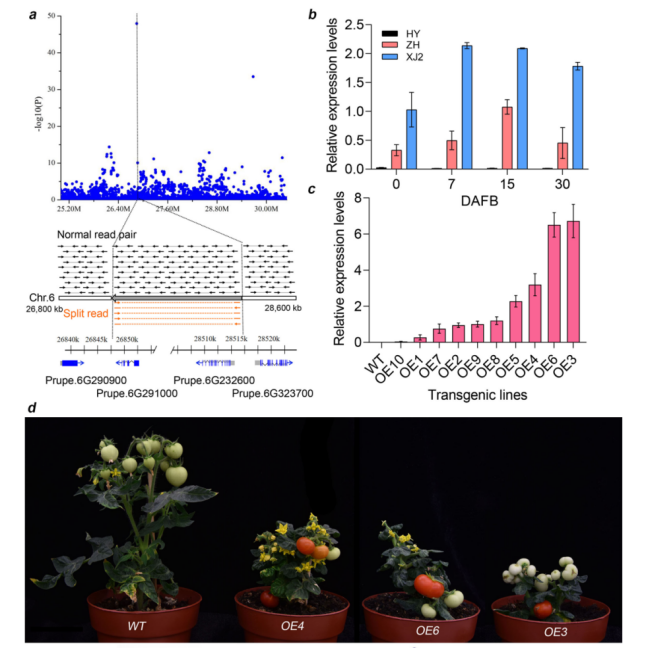Recently, Prof. Wang Lirong from Zhengzhou Fruit Research Institute (ZFRI) has published their new findings in peach genome structure variation field in Genome Biology . Genome structural variations (SVs) have been associated with key traits in a wide range of agronomically important species; however, SV profiles of peach and their functional impacts remain largely unexplored.
In this study, the researchers present an integrated map of 202,273 SVs from 336 peach genomes. A substantial number of SVs have been selected during peach domestication and improvement, which together affect 2,268 genes. Genome-wide association studies of 26 agronomic traits using these SVs identify a number of candidate causal variants. A 9 bp insertion in Prupe.4G186800 , which encodes a NAC transcription factor, is shown to be associated with early fruit maturity, and a 487 bp deletion in the promoter of PpMYB10.1 is associated with flesh color around the stone. In addition, a 1.67 Mb inversion is highly associated with fruit shape, and a gene adjacent to the inversion breakpoint, PpOFP1 , regulates flat shape formation.
This study was the fourth important achievement in their “1000 Peach Genome Project” after their findings in 2014, 2016 and 2019. The integrated peach SV map and the identified candidate genes and variants represent valuable resources for future genomic research and breeding in peach.
This study was supported by the grants from the National Natural Science Foundation of China (31972392), the Agricultural Science and Technology Innovation Program (CAAS-ASTIP-2020-ZFRI-01), National Horticulture Germplasm Resources Center.
Link of research paper in Genome Biology:
https://genomebiology.biomedcentral.com/articles/10.1186/s13059-020-02169-y
By Guojian
ytguojian@163.com

Identification and functional characterization of the candidate fruit shape gene
